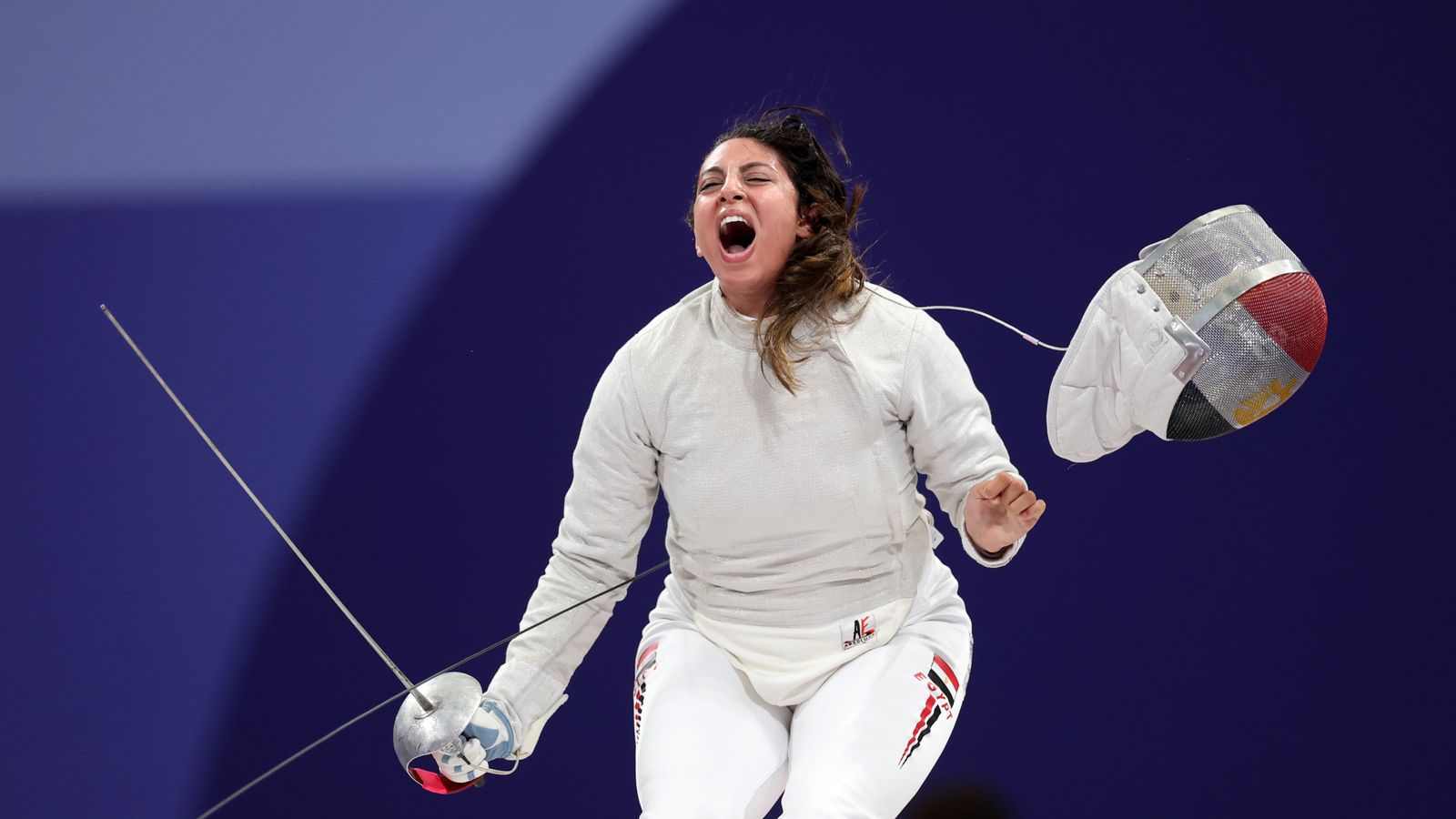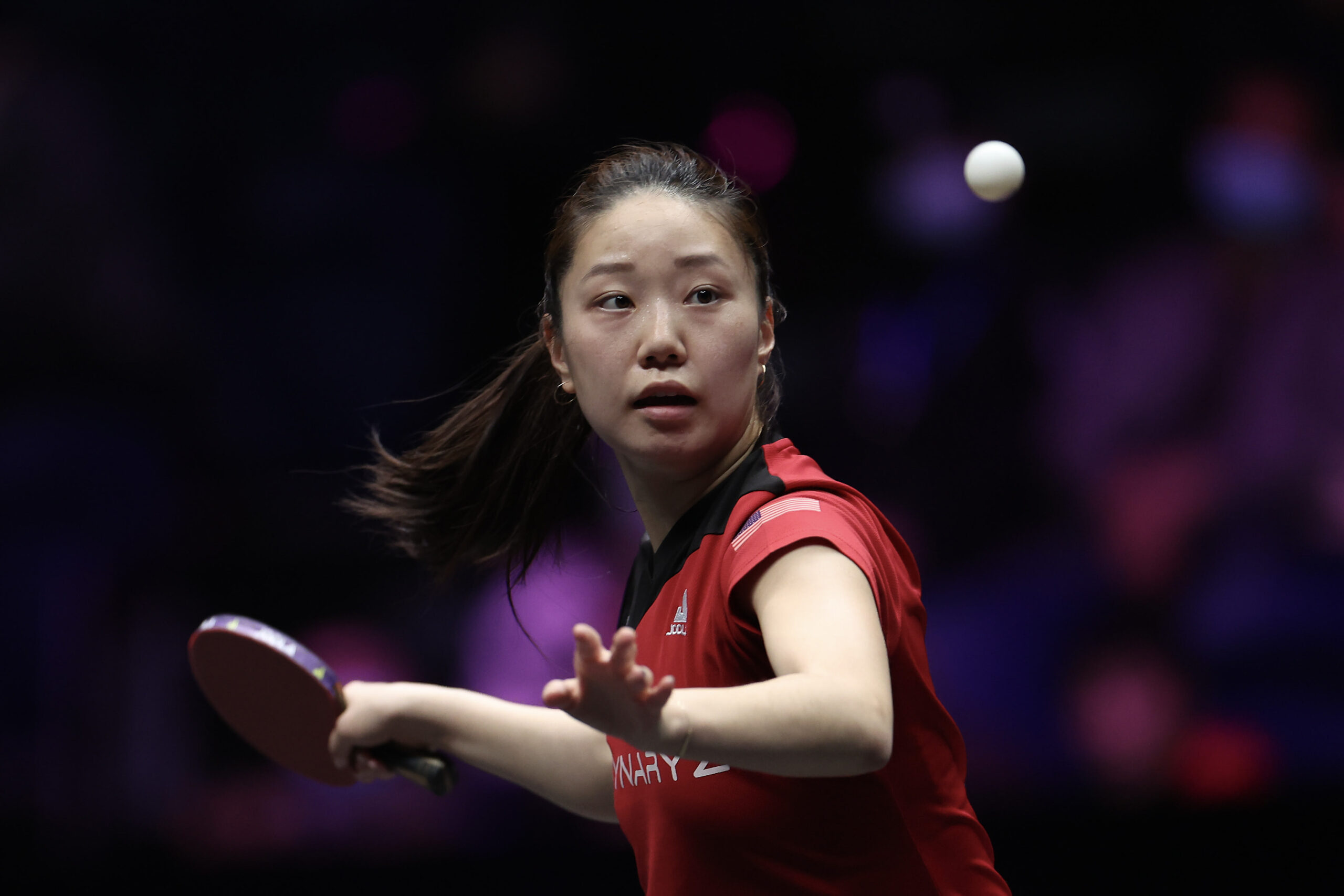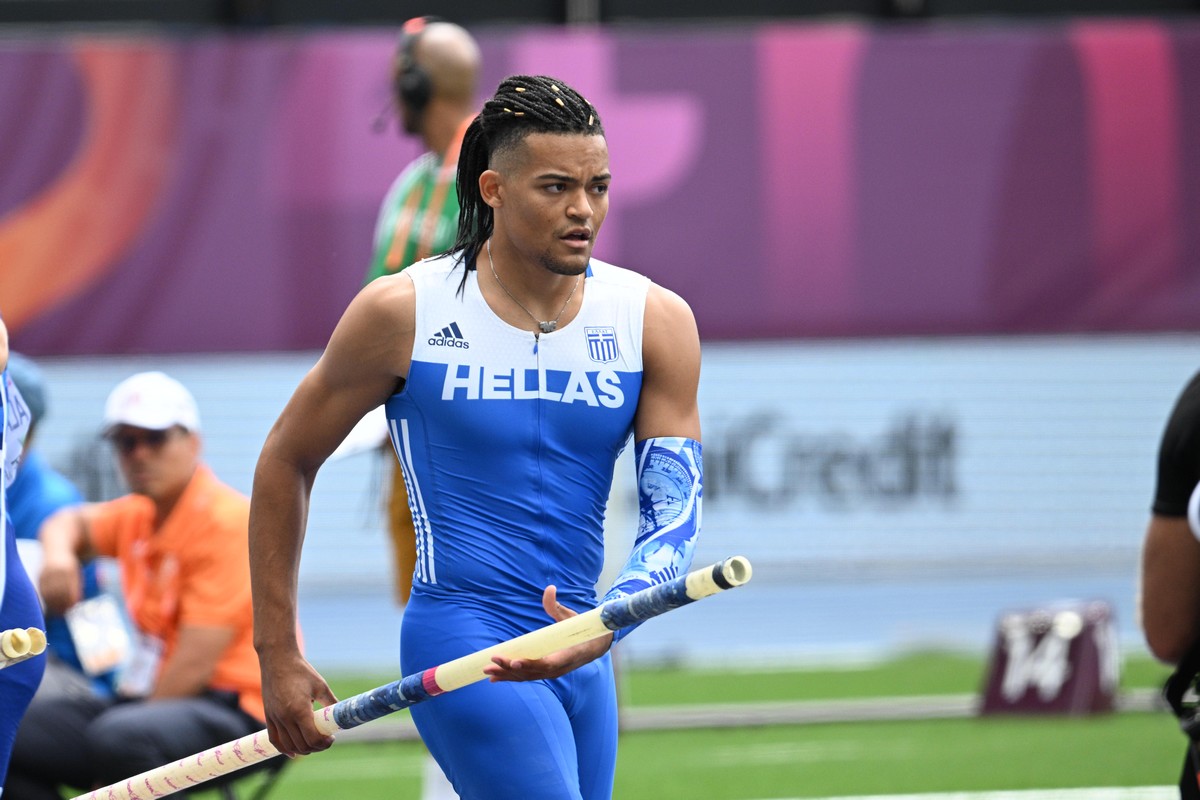By Evridiki Fatolia,
The Olympics of 2024 have stood out to us for many reasons, as they have been promoting gender equality and stood against racial discrimination, with a very active campaign that has started since the opening ceremony. The said initiative has sparked multiple reactions from people all over the world, making these Games one of the most discussed over the past years. But this institution has been in the spotlight for another reason as well: highlighting and showcasing unique stories of athletes from all over the world. This article will take a dive into the most outstanding stories that have been the talk of the recent Olympics.
Nada Hafez
“What appears to you as two players on the podium, they were actually three! It was me, my competitor, & my yet-to-come to our world, little baby! My baby & I had our fair share of challenges, be it both physical & emotional. The rollercoaster of pregnancy is tough on its own, but having to fight to keep the balance of life & sports was nothing short of strenuous, however worth it. I’m writing this post to say that pride fills my being for securing my place in the round of 16!” This was the first post on Instagram where the athlete made clear that she was competing while she was 7 months pregnant.

Natalie Molauzen
Natalie Molauzen, a sword fighter, is one Olympic story from this year that is worth sharing and listening to. Natalie had to visit the hospital due to cancer, and it appeared as though her ambition of competing in the Olympics was fading. The athlete was dismissed in order to compete in the Olympics. Despite experiencing discomfort during her first sword fighting bout, the athlete persisted in fighting! She was unhappy during the match with Ruien Xiao. She halted at that point, but she soon resumed the race after a little break. After eventually collapsing during the run and sobbing, Natalie went to the doctor.
Lily Zhang
Lily Zhang was an athlete who played table tennis, a game she picked up from her family’s dinner table. Her parents, who were Chinese immigrants to the US at the time, seemed to be understanding of her favorite pastime and even made her take part in a few provincial competitions when they went back home for the summer. Zhang had already created a bad impression at the age of ten, since her parents had assumed that her athletic background would make it easier for her to get employment in a college. When she was just 16 years old, she made her debut at the London Olympic Games in 2012, but her parents were not very thrilled and advised her to go back to her books as they knew she would eventually attend college. Twelve years later, she is still under pressure to quit up and find “a serious job”, and because she seems to think that “in the end they also have a right, something that annoys her”, her mental state has deteriorated with time.

Emmanuel Karalis
Greece’s bronze medalist at the Olympics, Emmanuel Karalis, in September 2020, four years prior, had done an interview in which, with a genuine testimony, he had stunned the audience by describing how, as a child, he had been the subject of racism at school alongside his sister, as well as by the remarks he now hears on the street. “A gang of kids pushed my sister and I and said, ‘Go to your country,’ when we were in elementary school. I went to a bench with my sister, we sat down, and we sobbed. […] It was carried out for an excessive amount of time,” he said in a typical manner when asked if they had been hit. “At the age of 15 began the most serious words and the worst eyes“. He stated that in order to deal with the entire event, he saw a psychologist from the age of 14. He was initially brought up directly in his grievance against Dimitris Kiteas, the federal sports coach. Karalis’ father is from Pirgos Ilias, and his mother is from Uganda; both are athletes. The coach reportedly called Karalis “the black man,” made derogatory remarks about them, and claimed that he “does a good job” and that “blacks are by nature stupid.” Manolo Karalis said, “My family raised me in a way that I only receive love“.




